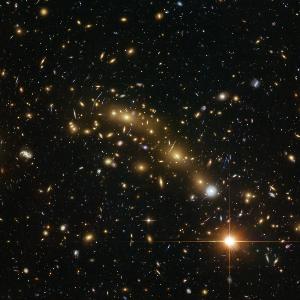Cosmology at USM
Researchers at USM are developing and employing the latest approaches of analysing and interpreting cosmological data, including innovative machine learning techniques as well as advanced theoretical methods to understand cosmic structure formation. We are also leading research activities in a large number of international collaborations.

